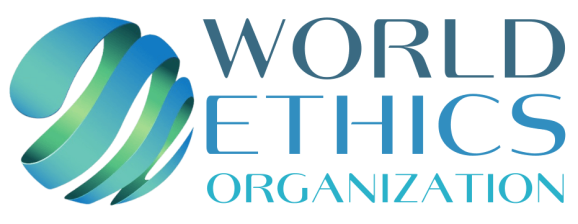
One of our stories this week highlights some ethical dilemmas that can arise, and asks the question: would you speak up? Ethical concerns often involve questioning established norms, confronting powerful figures, or challenging deeply ingrained practices, leading to several obstacles that deter individuals from voicing their concerns.
Individuals may fear reprisals or negative consequences for speaking out against unethical behavior. This fear can range from social ostracization to professional retaliation, making it daunting to stand against wrongdoing.
Societal and organizational cultures may prioritize conformity over ethical dissent. Within such environments, speaking up may be seen as disruptive, leading to isolation or dismissal, thereby dissuading individuals from voicing their ethical apprehensions.
Hierarchical structures and power differentials can create an environment where those in authoritative positions discourage opposition or dissent. Speaking against the actions of those in power can risk one’s position, influence, or relationships.
Ethical dilemmas are often intricate and multifaceted, lacking clear-cut solutions. This ambiguity can make it challenging for individuals to articulate their concerns effectively, as ethical matters frequently involve nuanced interpretations and subjective perspectives.
Lastly, speaking up against prevailing societal norms or accepted practices can subject individuals to societal stigma or alienation, leading many to choose silence over potential rejection.
Despite these challenges, speaking up for ethics is deeply important to fostering integrity, accountability, and positive change. Encouraging open dialogue and supporting individuals in voicing their ethical concerns is essential for the betterment of society and organizational culture.
Norway Isn’t as Squeaky Clean as It Thought
Norway faces a crisis of trust due to conflicts of interest and cronyism, challenging its image of transparency. Scandals, including a foreign minister’s departure for involvement in decisions related to her husband’s shares, have shaken the perception of clean Scandinavian politics. These issues expanded across the Labor-led cabinet, with accusations of favoritism and improper appointments. Prime Minister Jonas Gahr Store faced criticism for multiple controversies, affecting the Labor party’s local election performance. Opposition leader Erna Solberg also grapples with her husband’s stock trading, leading to declining support and calls for leadership change. The nation’s reputation for low corruption faces significant scrutiny.
NEH Creates New Funding for Ethics & AI Research
The Biden administration advocates legislative and regulatory actions on AI, emphasizing ethical expertise. The White House’s Executive Order establishes safety and privacy standards while calling for regulations on AI’s ethical use. Simultaneously, the National Endowment for the Humanities (NEH) initiates a program, Humanities Perspectives on AI, funding research projects focused on understanding the ethical, legal, and societal implications of AI. NEH provides funding opportunities for research centers, individual scholars, collaborative teams, and institutions planning scholarly programs related to humanistic AI, aiming to address the ethical challenges and societal impact of artificial intelligence. More details about NEH’s program can be found on their website. Meanwhile, Yale University has established a new Digital Ethics Center.
Checking Your Ethics: Would You Speak Up in These 3 Sticky Situations?
Navigating ethical dilemmas in consulting requires a delicate balance of values and loyalties, according to David Fubini from Harvard Business School. Fubini, with a background in consulting, underscores the complexity of ethical challenges for consultants, emphasizing that blurred lines often dictate appropriate behavior. Addressing three moral conundrums, Fubini advises that speaking up against a coworker flouting the rules, handling abusive behavior observed at a client’s firm, and ensuring transparent methodologies, albeit using AI for analyses, all pivot on maintaining client service and integrity. The bottom line—transparency, client-focused work, and senior guidance are vital to managing ethical issues effectively in the consulting landscape.
University System of Georgia to run Ethics Week Nov. 6-12
As part of USG Ethics week, the University of North Georgia (UNG) will emphasize a culture of excellence, promoting ethical leadership through daily ethics questions, mandatory ethics refresher training, and panel discussions about data-driven landscapes, compliance, and promoting an ethical culture. UNG will also host the Mid-Atlantic Regional Intercollegiate Ethics Bowl competition. The UNG Office of University Compliance will partner to ensure the event’s integrity. Additionally, the TRUIST Center offers products fostering ethical leadership, including programs for leadership development and organizational assessment.
‘Subject’ Review: A Question of Ethics in Documentary Filmmaking
The documentary “Subject” examines the ethics of nonfiction filmmaking by discussing the experiences of individuals whose lives were captured in famous documentaries. It delves into their emotions, ranging from pride to distress, unveiling broader debates on storytelling principles and truth. The film interrogates issues like compensating documentary subjects but tends to oversimplify diversity and representation themes. Notably, it neglects its own involvement in the ethical queries it raises. While compelling, the documentary falls short in exploring the filmmakers’ perspectives and lacks self-reflection on their complicity, leaving open the need for another documentary to explore its making.
